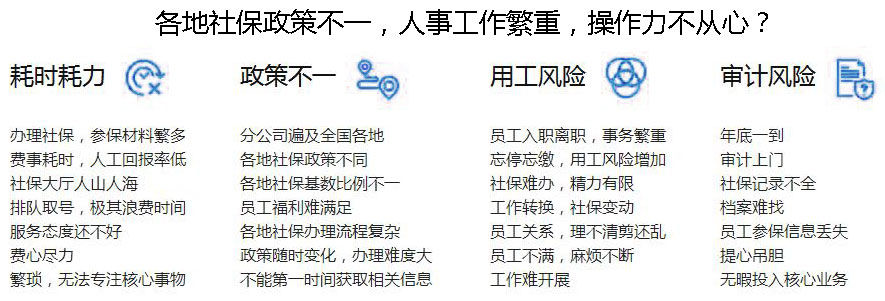- test
- Avia Masters in India Crash Game Dynamics and Betting Strategies
- Avia masters Casino igra z RTP 97%
- Going for The fresh Web based casinos in the Ca: Helpful tips to have 2025
- ten Finest Crypto Casino Betting, Playing United states Sites out of 2025
- Verbunden Kasino Provision ohne Einzahlung originell! 2025
- Jobb valódi pénzes online kaszinók az USA-ban Játssz és nyerj valódi pénzt
- Finest Web based casinos for your Area, Incentives & Earnings
Emerging Realities Stay informed with essential updates and Nigerian news impacting businesses and d
- Emerging Realities: Stay informed with essential updates and Nigerian news impacting businesses and daily life as pivotal shifts unfold.
- The Current Economic Climate in Nigeria
- Political Developments and their Impact
- Security Challenges and Regional Stability
- Infrastructure Development and Investment Opportunities
- Technological Advancements and Digital Transformation
- Social and Demographic Trends
- Education and Skills Gap
- Urbanization and Infrastructure Strain
- Regional Integration and Trade Opportunities
Emerging Realities: Stay informed with essential updates and Nigerian news impacting businesses and daily life as pivotal shifts unfold.
In a rapidly evolving global landscape, staying informed about current events is paramount, particularly for businesses and individuals navigating the complexities of the modern world. The consistent flow of information, often referred to as news, shapes perceptions, influences decisions, and drives both economic and social change. Understanding these shifts, especially within specific regions like Nigeria, is crucial for effective planning and adaptation. This article delves into emerging realities, providing essential updates and focusing on Nigerian news impacting various sectors and daily life as pivotal changes unfold.
The need for reliable and timely information has never been greater. Businesses require insights into market trends, political stability, and regulatory changes to make informed investments and manage risks. Individuals need to understand the factors influencing their communities and livelihoods. This exploration offers a comprehensive overview of key developments, providing a foundation for understanding the challenges and opportunities that lie ahead.
The Current Economic Climate in Nigeria
Nigeria, Africa’s most populous nation and largest economy, is currently facing a complex economic environment. Fluctuations in global oil prices, a significant contributor to the country’s revenue, continue to exert substantial influence. Diversification efforts are underway, but progress remains uneven. Inflation rates have been a persistent concern, impacting purchasing power and business profitability. The Central Bank of Nigeria has implemented various monetary policies to mitigate these challenges, but their effectiveness is still being evaluated. Foreign exchange rates also add complexity, requiring businesses to carefully manage their financial exposure.
| GDP Growth Rate | 3.1% | 3.8% | 4.2% |
| Inflation Rate | 18.8% | 24.4% | 21.0% |
| Exchange Rate (NGN/USD) | 460 | 800 | 850 |
Understanding these economic indicators is vital to assessing the current business landscape in Nigeria.
Political Developments and their Impact
The political landscape in Nigeria continues to evolve, with recent elections bringing about shifts in leadership and policy priorities. These changes have significant implications for businesses and investors. Key areas of focus include security, infrastructure development, and the rule of law. Political stability is essential for fostering a conducive environment for economic growth. Ensuring transparency and accountability in governance is also crucial for building trust and attracting investment.
Security Challenges and Regional Stability
One of the most pressing challenges facing Nigeria is the issue of insecurity. Various regions of the country are grappling with different forms of conflict, including terrorism, banditry, and communal clashes. These conflicts disrupt economic activity, displace populations, and undermine confidence in the government. Addressing these security challenges requires a multifaceted approach, involving robust security measures, community engagement, and addressing the root causes of conflict. The impact on business operations can be substantial, often resulting in increased security costs, supply chain disruptions, and relocation of personnel.
International collaboration is vital in securing regional stability. Working with neighboring countries, such as Niger and Chad, to combat cross-border crime and terrorism is essential. Strengthening security infrastructure and investing in intelligence gathering are also crucial steps. Furthermore, fostering dialogue and reconciliation among communities can help to address underlying grievances and promote peaceful coexistence. The long-term goal is to create a safe and secure environment for businesses to thrive and for individuals to live without fear.
Infrastructure Development and Investment Opportunities
Nigeria’s infrastructure deficit is a significant constraint on economic growth. However, the government has prioritized infrastructure development as a key pillar of its economic agenda. Investments are being made in roads, railways, ports, and power generation. These projects offer significant opportunities for both domestic and foreign investors. Public-Private Partnerships (PPPs) are increasingly being used to finance infrastructure projects, attracting private sector expertise and capital. Addressing infrastructure gaps will not only boost economic activity but also improve the quality of life for citizens.
The development of transportation infrastructure, like railways and roadways, facilitates the movement of goods and services, reducing transportation costs and enhancing supply chain efficiency. Investments in power generation are essential for addressing the chronic power shortages that plague many businesses. Modernizing port facilities will enhance trade and facilitate the import and export of goods. When investing in such areas, it’s important to consider risk assessments, returns and long-term sustainability. Prioritizing infrastructure development will unlock economic potential.
Technological Advancements and Digital Transformation
Nigeria is experiencing a rapid surge in technological advancements, driven by a young and increasingly tech-savvy population. Digital transformation is sweeping across various sectors, impacting how businesses operate and how consumers interact with goods and services. Fintech companies are leading the way in innovation, providing access to financial services for the unbanked and underbanked populations. The growth of e-commerce is also transforming the retail landscape, offering consumers greater convenience and choice.
- Increased Mobile Penetration: A growing number of Nigerians have access to smartphones and mobile internet.
- Rise of Fintech Companies: Innovative financial technology firms are disrupting the traditional banking sector.
- Expansion of E-commerce: Online shopping is becoming increasingly popular.
- Adoption of Digital Payment Systems: More Nigerians are using digital payment methods.
Adapting and leveraging these new technologies is going to be vital for businesses aiming for success in Nigeria’s ever-growing and evolving tech landscape.
Social and Demographic Trends
Nigeria’s population is characterized by a youthful demographic profile, offering both opportunities and challenges. The large youth population presents a potential workforce for economic growth, but it also requires significant investments in education and skills development. Urbanization is another key trend, with millions of people migrating to cities in search of better opportunities. This rapid urbanization puts pressure on infrastructure and social services, requiring sustainable urban planning and management.
Education and Skills Gap
Investing in education is critical to harnessing the potential of Nigeria’s youthful population. However, the education system faces numerous challenges, including inadequate funding, poor infrastructure, and a shortage of qualified teachers. Bridging the skills gap is essential for preparing young people for the jobs of the future. Vocational training programs can equip individuals with the practical skills needed to succeed in the labor market. Furthermore, fostering entrepreneurship and innovation can create new opportunities for self-employment.
Collaboration between educational institutions and the private sector is vital to ensuring that educational programs are aligned with the needs of the job market. Providing scholarships and financial aid can help to improve access to education for disadvantaged groups. Addressing the education challenge will unlock the country’s human capital potential and drive long-term economic growth.
Urbanization and Infrastructure Strain
Rapid urbanization poses significant challenges for cities in Nigeria. Inadequate infrastructure, including housing, transportation, and sanitation, struggles to cope with the increasing population. This leads to congestion, pollution, and reduced quality of life. Sustainable urban planning and management are essential for addressing these challenges. Investing in affordable housing, improving public transportation, and expanding access to basic services are crucial steps.
Smart city initiatives, leveraging technology to optimize resource management and improve service delivery, can also enhance urban living. Engaging communities in decision-making processes can ensure that urban development projects meet local needs and priorities. Tackling the challenges of urbanization will unlock economic potential and improve the quality of life for millions of Nigerians.
Regional Integration and Trade Opportunities
Nigeria is actively playing a role in regional integration efforts within the Economic Community of West African States (ECOWAS). The African Continental Free Trade Area (AfCFTA) presents significant opportunities for boosting intra-African trade and economic cooperation. Reducing trade barriers and harmonizing regulations can foster greater regional integration. These initiatives provide businesses with access to a wider market and opportunities for expanding their operations across the continent.
- ECOWAS Trade Liberalization Scheme: Reduces trade barriers within the West African region.
- African Continental Free Trade Area (AfCFTA): Aims to create a single market for goods and services across Africa.
- Increased Investment Flows: Regional integration encourages foreign direct investment.
- Enhanced Economic Cooperation: Facilitates collaboration on infrastructure and other development projects.
Leveraging these benefits requires strengthening trade infrastructure, streamlining customs procedures, and promoting cross-border investment. Creating a conducive environment for businesses to thrive within the regional framework is vital for reaping the full potential of regional integration.
The evolving dynamics within Nigeria and across the broader African continent demand continuous attention and adaptability. Navigating these complexities requires a proactive approach, embracing innovation, fostering collaboration, and remaining attuned to the changing needs of businesses and communities. By staying informed and engaged through reliable updates, stakeholders can better position themselves to capitalize on the opportunities and mitigate the risks that lie ahead.

常见社保问题:
Q1:社保代理合法吗?
A1:合法。
相关法律:《劳动保障事务代理暂行办法》第二条规定“本暂行办法所称的劳动保障事务代理,是指劳动保障事务代理经办机构,根据协议,接受用人单位或劳动者个人的委托,在一定期限内为委托方代管劳动者个人档案、代办劳动人事、社会保险等劳动保障事务的行为”
A2:社保代理收费标准为19.8元/月起,代理办理社保相应服务,主要有:
1.工伤认定、评级、报销手续;
2.养老退休手续;
3.生育津贴、产前检查费报销、申领手续;
4.参保人员的医疗费报销;
5.失业保险金领取手续
6..……
A3:养老保险需要交满15年。养老金领取按当地社保领取政策为准。
A4:医保具体连续缴纳时限,各地社保政策有不同的规定,成都规定要连续缴纳12个月。医保断缴后即暂停享受医保待遇,欠费3个月以内补缴的,不算断缴,可连续享受社保待遇,欠费4个月以上的视为中断。
A5:生育保险要连续交满12个月,才能享受生育待遇。生育保险具体报销标准应看各地社保政策规定。

